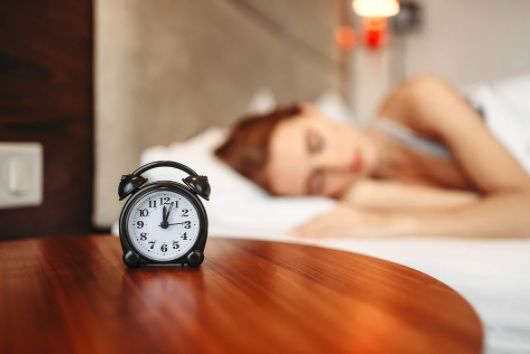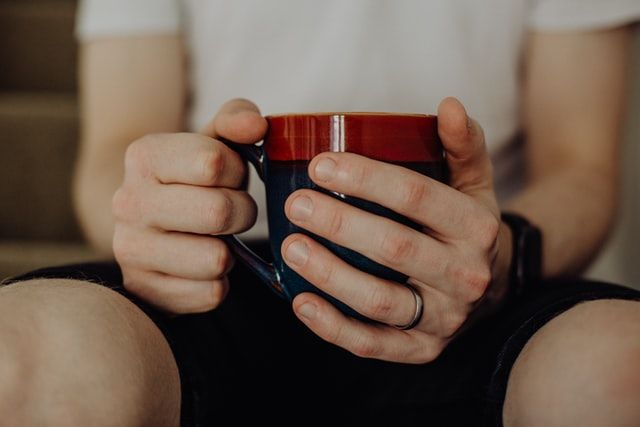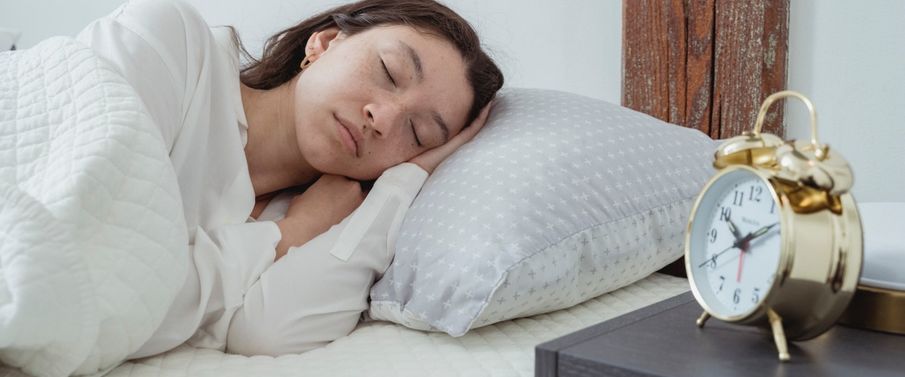Whether you’re coming out the other side of a long weekend, the clocks have changed, or you’ve been making the most of your time off with some well-earned relaxation, discover how to reset your body clock, fast
Sleep. It’s essential. Getting a good night’s rest allows your body and mind to recharge, helping you to feel ready, refreshed, and alert for the day ahead. Without good quality sleep, we’re not only left feeling grumpy and unfocused - we could be putting our health at risk, too.
One in three of us suffers from poor sleep. But, when a bad night’s sleep turns into a regular occurrence, we put ourselves at risk of a number of physical and mental health problems. If you find yourself watching the clock and longing for a nap, chances are, you aren’t getting enough shut-eye.
Knowing we need more sleep, and actually resetting our schedules can be two very different things. Long weekend nights can lead to our bed and waking times slipping further and further back. Well-earned days relaxing during our time off can result in us not feeling tired come bedtime, whilst the clocks going back each October or forward in March can leave us feeling groggy and confused.
But as tempting as it is to break the healthy habits we've built, Counselling Directory member Heather Darwall-Smith explains that creating a routine is key to getting a better night’s sleep.
“My golden rule is to have a consistent wake-up time, combined with light exposure, movement, and a protein-based breakfast. Our body clock responds to several environmental cues – sunlight, mealtimes, and exercise.
“Waking up at the same time every day is about training the brain to reset its sleep timing and build a consistent rhythm in the body. This consistency means your circadian rhythm and sleep pressure align to create the opportunity for sleep each night.”
Another important factor is to cut yourself some slack if your routine is disturbed. As Heather explains: “A rigid night-time routine can be problematic in trying to fix sleep issues. People panic if they can’t fulfil that routine because of an unexpected late-night, travel, etc. Make sure you allow yourself time to wind down after the day, allow yourself time to get the sleep you need, but focus more on your wake-up routine.”
To help you get your sleep schedule back on track, the sleep experts from MatressNextDay have shared their guide to reset your body clock in three days.

Day one
Wake up: 10am
Bedtime: 11pm
Today’s plan: exercise and hydrate
If you’re getting started over a bank holiday weekend, it’s best to get started on a Saturday. To help you feel ready to fall asleep on time, try and fit in a 30-minute workout. Research has shown that moderate exercise can not only boost your mood, but can help those experiencing sleep issues such as insomnia to fall asleep faster and for longer, experiencing a better quality of sleep overall. Exercise can also act as a natural stress reliever which, in turn, can help you to feel calmer and ready to switch off at the end of the day.
Make sure to drink plenty of water. Even mild dehydration can leave you feeling sleepy and lethargic throughout the day, with research showing it can negatively impact our ability to complete tasks that require our concentration, coordination, or more complex problem-solving skills. Keeping a bottle of water with you can help to remind you to keep drinking, whilst helping you to avoid the pitfalls of hidden caffeine boosts.
Ensuring you cut down on screen time before bed can also be key to helping reset your body clock more quickly. Heather explains more:“Avoid blue light (especially from your smartphone) between 11pm and 4am. Light exposure at the wrong time confuses the region of the brain that tells us to wake up. Stepping away from screens is essential to improving sleep.”
Day two
Wake up: 8am
Bedtime: 11pm
Today’s plan: sunlight, limited naps, and limited alcohol
For day two, kickstart your morning by opening your curtains to get some early morning rays. Bright light signals for your brain to stop producing melatonin (the sleep hormone), which makes you feel drowsy. Getting outside for as little as 10 minutes can help to increase your vitamin D levels, which plays an important role in our mental and physical health, particularly with regards to supporting healthy brain function and our immune system.
Vitamin D not only helps keep our bones, teeth and muscles healthy, it can also play a huge role in regulating your mood. Not getting enough can lead to an overall sense of tiredness, aches, pains, and generally not feeling well.
While napping isn’t ideal, catching a quick 10-20 minute snooze if you need to is OK. Just make sure you’re doing it as soon as possible. The longer you wait, the closer bedtime creeps and the more likely you are to disrupt your sleep schedule. By limiting yourself to 30 minutes or less, you reduce your chance of entering a deep sleep cycle and waking up groggy.
Alcohol can reduce your REM sleep, causing more disruptions and a less restful night. By limiting your alcohol intake, you reduce the likelihood of it disrupting your sleep and causing excessive sleepiness the next day.

Day three
Wake up: 6-7am (or as early as you need for work)
Bedtime: 10pm
Today’s plan: good food, limited caffeine, calming nighttime routines
What you eat can have a huge impact on how you sleep. Diet and sleep quality are closely linked. Get your day off to a good start by having a balanced breakfast with healthy fats and lean protein for an early morning energy boost. Limit your caffeine intake by cutting back on coffee or switching to herbal tea to avoid relying on short-term energy boosts that may leave you feeling groggy.
Your cortisol levels (the stress hormone) can leave you feeling more awake, so it’s important to maintain a sustainable, relaxing nighttime routine. Stretching, mindful meditation, yoga, or having a hot bath can all be simple ways of unwinding without screens.
To learn more about good sleep hygiene and how to handle problems with sleep, visit Counselling Directory.


Comments